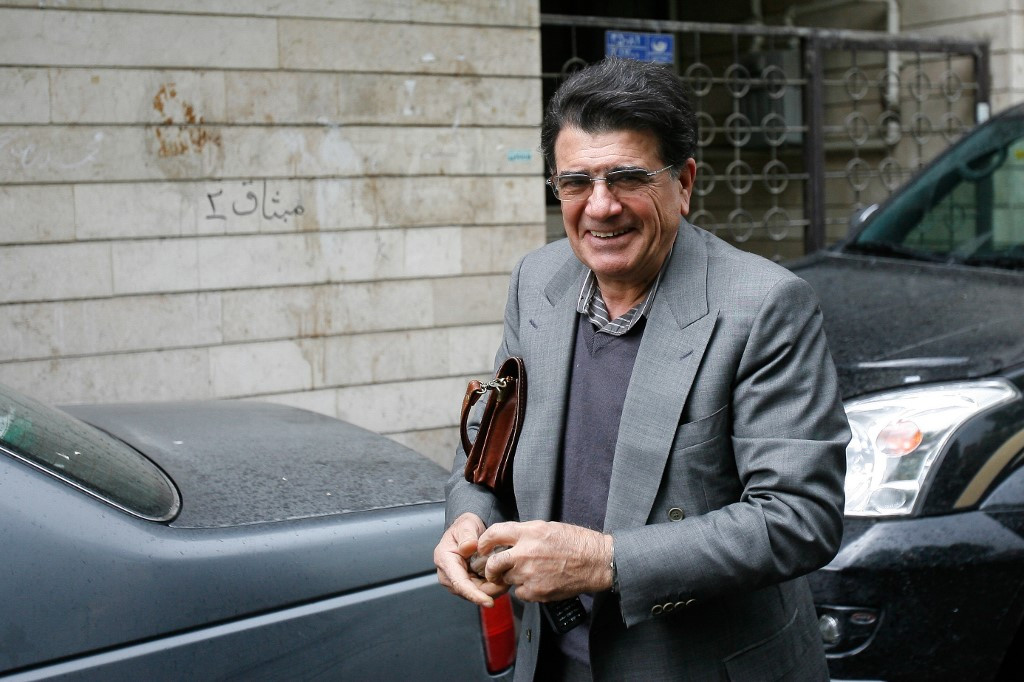Popular Reads
Top Results
Can't find what you're looking for?
View all search resultsPopular Reads
Top Results
Can't find what you're looking for?
View all search resultsIran's Shajarian, iconic singer often at odds with authorities, dies
Change text size
Gift Premium Articles
to Anyone
L
egendary Iranian singer, instrumentalist and composer Mohammad-Reza Shajarian died on Thursday at the age of 80 after a long battle with illness, sparking an outpouring of grief in the country.
A national treasure in his homeland, Shajarian nevertheless maintained difficult relations with the authorities in Tehran throughout his career, first under the reign of the shah and then with the Islamic republic.
The "Ostad" -- master in Persian -- who had been battling cancer for several years, "flew to meet his beloved (God)", his son Homayoun Shajarian, himself a famous singer, wrote on Instagram.
. خاک پای مردم ایران به دیار معشوق پرواز کرد
A post shared by Homayoun Shajarian (@homayounshajarian) on
Soon after the announcement, thousands of fans converged on the Jam hospital in Tehran where he had been admitted a few days ago in a critical condition, AFP correspondents reported.
In tears and despite appeals by Homayoun urging them to observe social distancing rules imposed to contain the COVID-19 pandemic, they gathered and sang "Mogh-e Sahar", one of Shajarian's many hits.
"Shajarian was a great & true Ambassador of Iran, her children and -- most of all -- her culture," Iran's Foreign Minister Mohammad Javaz Zarif tweeted.
President Hassan Rouhani paid tribute to an "amiable artist" who created "eternal" melodies.
"The grateful nation will always keep alive (his) name, memory and work," he added.
Shajarian had been persona non grata on state broadcaster IRIB since 2009, but that did not stop Iranians from listening to his tenor voice.
Read also: Death of exiled singer sparks controversy in Iran
Secret initiation
Born on September 23, 1940 into a religious family in Mashhad, a Shiite holy city in northeastern Iran, Shajarian was initiated at the age of five to Islamic psalmody by his father, a reciter of the Koran.
At 12 he began his initiation -- in secret from his parents -- to the santur, a percussion-stringed instrument whose roots date back to pre-Islamic Persia.
He was trained to perform the "radif" -- the traditional repertoire that forms the basis of Persian secular music that every artist is expected to master before moving on to improvisation, typical in Iranian classical music.
Following in his father's footsteps, Shajarian first performed as a reciter of the Koran.
In 1959, he made his debut on radio and his voice quickly carried him to fame.
Shajarian quit Iranian radio and television a few days after "Black Friday" -- September 8, 1978 -- denouncing the massacre of demonstrators carried out on that day by the shah's regime.
After the Islamic revolution the following year, he accused the authorities of wanting to use him as a "docile musician" to make people believe they "are not completely opposed to music".
'Persian identity'
Shajarian has been critical of the Islamic republic, which he accused of being opposed "to the very idea of the Persian identity of Iranians".
"While accepting Islam, Iranians never lost their culture," he once told a German radio station.
In 1997, he assailed IRIB in an open letter, accusing it of using his works without his permission, of censoring them, and generally "ignoring moral values".
The maestro demanded they stop airing his voice, except for two pieces, "Monajat" and "Rabbana", psalms taken from the Koran that he only allowed to be played during Ramadan.
It was a lost cause, however, as the broadcaster ignored his wishes.
In 2009, amid a crackdown on protests against the disputed re-election of ultra-conservative president Mahmoud Ahmadinejad, he was angered over the station's use of one of his songs created against the shah.
He once again demanded state radio stop broadcasting his works, declaring that his songs "are and will always remain the voice of twigs and fetuses".
That was a direct retort to Ahmadinejad, who had used the terms derisively to describe the demonstrators.
Read also: All-women band in Iran struggles to break through
'Lay down your gun'
In his song "Zaban-e Atash" (Language of Fire), Shajarian appears to address paramilitary forces cracking down on the protesters with the line "Lay down your gun, my brother".
The influential artist declared that his songs are always related to the political and social situation in Iran, even when he sings the lyrical poems of Hafez or Rumi.
Although he was never arrested, which he claimed was due to his popularity and "authority", IRIB banned his music from its airwaves and he was barred from performing in the country.
Already accustomed to international tours, he continued to perform abroad, especially in the United States, where his daughter Mojgan lives.
She is also a singer but is unable to take the stage in the Islamic republic, which bans solo female acts.
President Rouhani, who had declared on several occasions during the 2013 election campaign that he adores Shajarian's voice, tried unsuccessfully to lift the ban on "Rabbana".
The song is inseparable from the Muslim fasting month of Ramadan for a large part of Iran's population.
A devotee of Persian music in its pure form, Shajarian also delved into experimentation through the creation of new instruments based on traditional ones.
Shajarian, who will be buried in Mashhad according to his son, leaves behind an imposing discography.










